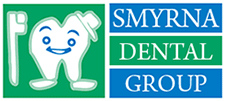When it comes to dental woes, few topics spark as much debate as root canals and tooth extractions. Both procedures are common, yet they can evoke a range of emotions from fear to relief. The decision between saving a tooth with a root canal or opting for extraction is not always straightforward. Many factors come into play—pain levels, recovery time, and long-term oral health impact.
If you find yourself in the position of
needing dental work in Smyrna TN, understanding these two options can empower your decision-making process. Let’s dive deep into what each procedure entails and help you determine which might be the best path for your smile.
Understanding the Procedures in Smyrna TN
Root canals and
tooth extractions serve different purposes in dental care. Understanding each procedure helps patients make informed choices.
A root canal involves removing the infected pulp from inside a tooth. The dentist cleans the area thoroughly, then fills it to prevent further infection. This process can save a natural tooth and restore its function.
Tooth extraction is more straightforward. It involves completely removing a tooth that may be damaged or decayed beyond repair. After extraction, healing focuses on the empty socket left behind.
Both procedures require local anesthesia for comfort during treatment. Recovery times vary; root canals typically involve less downtime than extractions, which might require longer healing periods due to tissue recovery.
Deciding between these options hinges on your specific dental issues and long-term oral health goals.
Pros and Cons of Root Canals
Root canals can be a lifesaver for damaged teeth. They allow you to save your natural tooth, which is often better than opting for extraction. Many people appreciate the ability to maintain their smile and bite.
However, the procedure isn’t without its drawbacks. Some patients experience anxiety at the thought of dental work, especially when it involves drilling and injections.
Aftercare can also be a concern; discomfort may linger for days following the treatment. While many find relief with pain management, it's not uncommon to face sensitivity during recovery.
Another consideration is success rates: while root canals are generally effective, there’s always a chance that complications arise later on. In some cases, another treatment might be necessary down the line.
Weighing these pros and cons helps determine if root canal therapy aligns with individual needs or preferences.
Pros and Cons of Tooth Extractions
Tooth extractions can be a necessary option for various dental issues. One significant advantage is the immediate relief from pain or infection. Removing a problematic tooth often resolves underlying problems quickly.
However, there are downsides to consider. After an extraction, you may experience discomfort and swelling during the healing process. This recovery time can take several days and may disrupt your daily activities.
Another point to ponder is the long-term impact on oral health. Missing teeth can lead to the shifting of adjacent teeth and even changes in bite alignment over time.
Additionally, some people might feel anxious about undergoing surgery, despite it being a common procedure.
While tooth extractions provide quick solutions for severe dental concerns, weighing these pros against potential cons is essential before making a decision about your oral health needs in Smyrna, TN.
Contact us to learn more.
Factors to Consider When Choosing Between Root Canal and Tooth Extraction
When deciding between a root canal and tooth extraction, several factors come into play.
- First, consider the extent of damage to your tooth. If it's severely infected or decayed, extraction may be necessary.
- Next, think about your overall dental health. Are there other issues that could complicate treatment? Your dentist can provide insights based on your unique situation.
- Age is another crucial factor. Younger patients might benefit more from saving their natural teeth through a root canal, while older individuals may opt for extraction if they have limited time left with the tooth.
- Cost also matters; root canals generally involve higher initial expenses but can save you money in the long run by preventing further complications.
How do you feel about preserving your natural smile? Emotional considerations shouldn't be overlooked when making this important decision.
Recovery Process Comparison
Recovery from a root canal typically involves minimal downtime. Most patients return to their daily activities within a day or two. Discomfort is common but manageable with over-the-counter pain relievers.
In contrast, recovery after tooth extraction can vary significantly. Some may experience swelling and bruising that lasts several days. It often takes longer for the mouth to heal completely following an extraction.
Diet plays a crucial role in recovery for both procedures. Soft foods are recommended post-extraction, while those who’ve had a root canal can usually resume normal eating sooner.
Follow-up care differs as well. Root canals require monitoring and sometimes additional treatments, while extractions might necessitate discussions on replacements like implants or dentures to maintain oral health long-term. Each path has its unique journey toward healing, tailored to individual needs and circumstances.
Cost Comparison
The cost of a root canal typically ranges from $700 to $1,500, depending on the tooth’s complexity and your location. This procedure often requires multiple visits, which can add to the total expense. However, many dental insurance plans cover part of this treatment.
Tooth extractions tend to be more affordable upfront, usually costing between $75 and $300 for a simple extraction. Surgical extractions may increase this price significantly due to additional complexities involved.
Consider also the long-term costs associated with each option. A root canal aims to save your natural tooth, potentially avoiding future expenses related to implants or bridges after an extraction. Weighing these financial factors is crucial when making your decision about procedures in Smyrna, TN.
Long-Term Effects on Oral Health
Choosing between a root canal and tooth extraction can have lasting implications for your oral health.
- Root canals aim to save the natural tooth, preserving its structure and function. This can lead to better overall dental alignment and reduce the risk of future complications from shifting teeth.
- On the other hand, extractions may seem simpler but come with challenges. Missing teeth can lead to bone loss over time, impacting facial aesthetics and potentially causing issues with bite alignment.
- Replacing an extracted tooth often involves further procedures like implants or bridges. These solutions might require additional care and maintenance, complicating your oral routine.
- Understanding these long-term effects is crucial in making an informed decision that supports not just immediate relief but also ongoing health benefits for your mouth.
Conclusion
Choosing between a root canal and
tooth extraction can be daunting. Each option has its own set of advantages and disadvantages that can significantly impact your oral health. Factors like the condition of the affected tooth, your overall dental health, recovery time, and cost should weigh heavily in your decision.
Remember that preserving natural teeth is often preferable when possible, as it maintains functionality and appearance. However, if a tooth is severely damaged or decayed beyond repair, extraction might be the necessary route to take.
Consulting with
a qualified dentist will help clarify which procedure aligns best with your needs. If you’re facing this tough choice in Smyrna, TN, don’t hesitate to reach out for expert advice on extractions or root canals tailored specifically for you. Prioritizing informed decisions will lead to better long-term outcomes for your smile and overall well-being.
If you are interested in learning more about our services, call Smyrna Dental Group in Smyrna, TN, at (615) 355-6800 to schedule an appointment with our dentists or request an appointment online.






